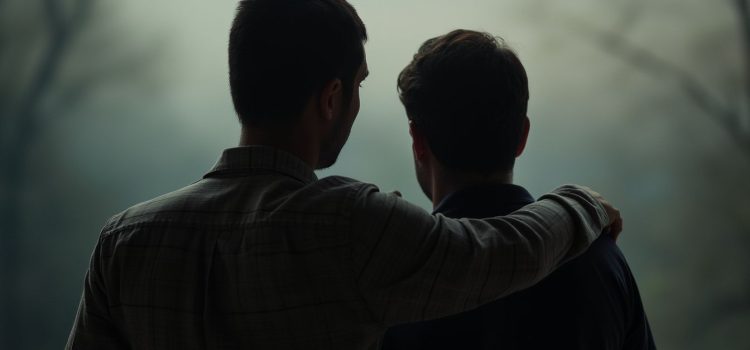
What happens when a family faces an ALS diagnosis? How do siblings navigate the complex journey of terminal illness together?
In There’s a Hole in My Bucket, Royd Tolkien shares a powerful ALS story about his brother Mike’s battle with the motor neuron disease. The memoir reveals intimate details about their family’s experience with healthcare systems, personal caregiving, and maintaining hope in the face of devastating circumstances.
Keep reading to discover how one family’s love and determination transformed their response to an impossible situation.
An ALS Story
There’s a Hole in My Bucket includes a touching and inspiring ALS story. As shared by Royd, his brother Mike’s battle with the motor neuron disease profoundly impacted their entire family, presenting both emotional and practical challenges. Royd describes how Mike’s journey began with subtle symptoms that eventually led to the devastating diagnosis of an incurable condition.
The family’s experience with the healthcare system was marked by frustration and inefficiency. Mike endured countless assessments, consultations with various medical professionals, and a series of tests, including a particularly distressing spinal tap. Royd recounts how his brother felt dehumanized, comparing the experience to being on a medical conveyor belt that stripped away his dignity and spirit.
Despite extensive research and seeking multiple opinions, the medical community appeared indifferent to their concerns. Prescribed medications proved ineffective, and after diagnosis, the family noticed a distinct lack of engagement from healthcare professionals. The only approved treatment offered a marginal extension of life but came with severe side effects.
In their search for better care, the family discovered Claire, a specialized physiotherapist who provided personalized attention that contrasted sharply with their experience in the national healthcare system. Royd notes that this relationship became a source of comfort during an otherwise challenging time, especially after receiving the stark advice to “organize your personal matters.”
Mike’s Resilience and Family Response
Despite facing increasing physical challenges, including muscle deterioration, difficulty swallowing, and dependence on respiratory support, Mike maintained his determination and wit. Royd describes how his brother stayed informed about his condition and actively sought ways to improve his quality of life when conventional medicine fell short.
Together, Mike, Royd, and their family launched a comprehensive effort to combat ALS on multiple fronts. Royd devoted himself to managing medical appointments, coordinating hospital visits, learning physical therapy techniques, and developing new ways to communicate as his brother’s abilities gradually declined.
The impact of Mike’s battle with ALS extended far beyond his personal struggle, deeply affecting his entire family circle. Royd, as the primary caregiver, took on the most substantial portion of both emotional and practical responsibilities. Royd’s dedication manifested in providing personalized assistance, emotional support, and guidance through complex medical procedures.
As Mike’s physical abilities declined, Royd’s role grew increasingly demanding. He balanced daily caregiving duties with administrative tasks and medical obligations, while also overseeing necessary modifications to their living space. The logistical aspects included learning to operate medical equipment and coordinating with builders for home adaptations. Despite the exhausting nature of these responsibilities, Royd remained driven by his deep love and commitment to his brother.
The family’s journey included several significant transitions, from home care to hospice and back to an adapted residence known as ‘Number 1.’ These changes reflected the evolving nature of Mike’s condition and his increasing dependence on both Royd and their established support networks. The primary caregiver’s duties extended beyond daylight hours, with Royd responding to urgent situations that arose during the night.
Quality of Life in Final Months
The family demonstrated remarkable unity in their efforts to maximize Mike’s quality of life during his final months. Royd and his relatives worked together to ensure Mike’s comfort, whether through finding new ways to interact or carefully preparing meals. Every action was infused with affection and carried the weight of their approaching farewell.
Mike’s experience with inadequate medical support, combined with his progressive loss of mobility and function, tells a larger story about families facing ALS and other terminal illnesses. His journey, supported unfailingly by his relatives, exemplifies the often unspoken challenges families encounter while striving to maintain dignity and comfort in life’s final stages.






